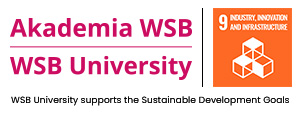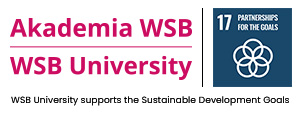

Is the future of education about artificial intelligence, VR and GPT chat? "Certainly, technology will play a very important role in creating a learning and teaching environment and will certainly redefine the role of the teacher," - said Dr Sabina Ratajczak - Pro Vice-Chancellor for Development at WSB University, who visited Europe's largest trade fair for the application of technology in education - Bett London 2023 - from 29 to 31 March.
This year's edition of the fair attracted more than 30,000 participants, representing 123 countries and more than 600 exhibitors. It was also a fantastic opportunity to observe the latest trends and solutions aimed at teachers, students, designers of teaching and IT solutions, but also a chance to confirm that WSB University is investing in technologies and solutions that are the future of teaching: such as simulation, VR, remote learning.
Students and teaching staff at WSB University use modern IT tools to make teaching more attractive but also more personalised. The Academy has implemented the Inspera system - one of the world's most modern solutions for remote examinations. It is a tool that allows teachers to create a variety, in terms of types of questions and tasks, of exam tests. As part of the exam, students can solve maths, chemistry, real-time programming, or analyse audio or video files. Inspera also offers the possibility of proctoring, i.e. very advanced exam monitoring. Thanks to such solutions, exams are better secured - all students have a level playing field and can count on fair marks, which increases the quality of the education they receive.
Many exhibitors at BETT 2023 offered solutions using virtual reality. AWSB students also have the opportunity to use VR as part of medical simulations in the paramedic or nursing courses. They also have a virtual elderly simulator at their disposal - software that allows the user to take on the role of an elderly person with sight and hearing impairments. The simulator is used by physiotherapy, computer science and transport students who are pursuing universal design modules as part of their studies.
In addition, the VR University - a tool that allows a virtual visit to the WSB University - will soon be launched. Using VR goggles, students will be able to take a digital tour of the WSB University building, allowing them to see the layout of rooms, corridors and infrastructure to support people with disabilities.


